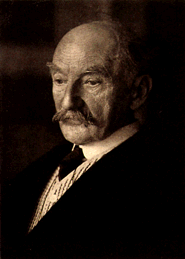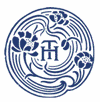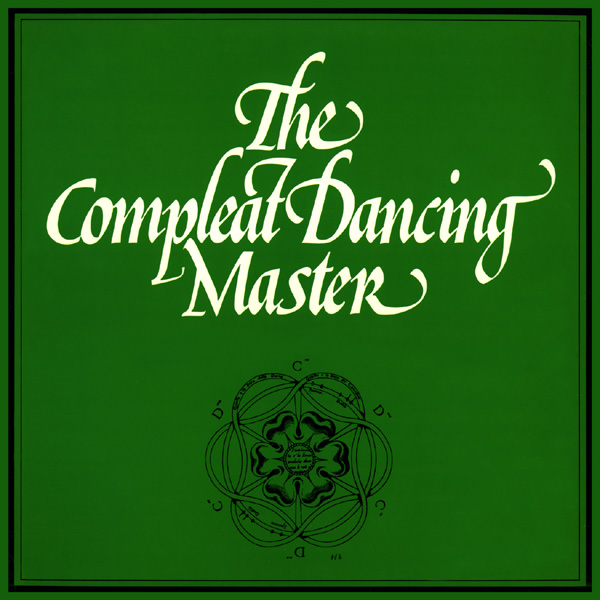|
In Prose and Verse

|
| Thomas Hardy. 1840-1928 |
Thomas Hardy was born at Higher Bockhampton, Dorset, on
June 2, 1840, where his father worked as a master mason and builder. From his father he gained an appreciation of music, and
from his mother an appetite for learning and the delights of the countryside about his rural home.Hardy was frail as a child, and did not start at the village school until he was eight years old. One year later he
transferred to a new school in the county town of Dorchester.At the age
of 16 Hardy helped his father with the architectural drawings for a restoration of Woodsford Castle. The owner, architect
James Hicks, was impressed by the younger Hardy's work, and took him on as an apprentice.Hardy later moved to London to work for prominent architect Arthur Blomfield. He began writing, but his poems were
rejected by a number of publishers. Although he enjoyed life in London, Hardy's health was poor, and he was forced to return
to Dorset.
In 1870 Hardy was sent to plan a church restoration at St. Juliot
in Cornwall. There he met Emma Gifford, sister-in-law of the vicar of St.Juliot. She encouraged him in his writing, and they
were married in 1874.
Hardy published his first novel, Desperate Remedies
in 1871, to universal disinterest. But the following year Under the Greenwood Tree brought Hardy popular
acclaim for the first time. As with most of his fictional works, Greenwood Tree incorporated real places around Dorset into
the plot, including the village school of Higher Bockhampton that Hardy had first attended as a child.
The success of Greenwood Tree brought Hardy a commission
to write a serialized novel, A Pair of Blue Eyes, for Tinsley's Magazine. Once more Hardy drew upon real
life, and the novel mirrors his own courtship of Emma.
Hardy followed this with Far From the Madding Crowd,
set in Puddletown (renamed Weatherby), near his birthplace. This novel finally netted Hardy the success that enabled him to
give up his architectural practice and concentrate solely on writing.
The Hardys lived in London for a short time, then in Yeovil,
then in Sturminster Newton (Stourcastle), which Hardy described as "idyllic". It was at Sturminster Newton that Hardy penned
Return of the Native, one of his most enduring works.
Finally the Hardys moved to Dorchester, where Thomas
designed their new house, Max Gate, into which they moved in 1885. One year later Hardy published The
Mayor of Casterbridge, followed in 1887 by The Woodlanders and in 1891 by one of his best works,
Tess of the d'Urbervilles.
Tess provoked interest, but his next work,
Jude the Obscure (1896), catapulted Hardy into the midst of a storm of controversy. Jude outraged Victoria
morality and was seen as an attack upon the institution of marriage. Its publication caused a rift between Thomas and Emma,
who feared readers would regard it as describing their own marriage.
Of course the publicity did no harm to book sales, but reader's
hid the book behind plain brown paper wrappers, and the Bishop of Wakefield burned his copy! Hardy himself was bemused by
the reaction his book caused, and he turned away from writing fiction with some disgust.
For the rest of his life Hardy focussed on poetry, producing
several collections, including Wessex Poems (1898).
Emma Hardy died in November 1912, and was buried in Stinsford
churchyard. Thomas was stricken with guilt and remorse, but the result was some of his best poetry, expressing his feelings
for his wife of 38 years.
All was not gloom, however, for in 1914 Hardy remarried, to
Florence Dugdale, his secretary since 1912. Thomas Hardy died on January 11, 1928 at his house of Max Gate in Dorchester.
He had expressed the wish to be buried beside Emma, but his wishes were only partly regarded; his body was interred in Poet's
Corner, Westminster Abbey, and only his heart was buried in Emma's grave at Stinsford.
.....and so thus begins our look at the countryside of Southern
England as seen through the eyes of, in our opinion, the greatest of all English novelists. Well chosen links, including links
to e-texts of some of Hardy's novels, poetry and articles, links to the countryside of Dorset, and all the other places of
association. Let's begone......
 |
 |
|
Did You Know?
|
|
A rumour has persisted since Hardy's death that it is not the author's heart
that was buried beside Emma. The story goes that Hardy's housekeeper placed his heart on the kitchen table, where it was promptly
devoured by her cat. Apparently a pig's heart was used to replace Hardy's own. Truth? Fiction? We will probably never know
|
|
 |
 |
 |
 |
|
Absent-Mindedness
in A Parish Choir
It happened on Sunday after Christmas the
last Sunday they ever played in Longpuddle church gallery, as it turned out, though they didn't know it then. The players
formed a very good band almost as good as the Mellstock parish players that were led by the Dewys; and that's saying a great
deal. There was Nicholas Puddingcome, the leader, with the first fiddle; there was Timothy Thomas, the bass-viol man; John
Biles, the tenor fiddler; Dan'l Hornhead, with the serpent; Robert Dowdle, with the clarionet; and Mr. Nicks, with the oboe
all sound and powerful musicians, and strong-winded men they that blowed. For that reason they were very much in demand Christmas
week for little reels and dancing-parties; for they could turn a jig or a hornpipe out of hand as well as ever they could
turn out a psalm, and perhaps better, not to speak irreverent. In short, one half-hour they could be playing a Christmas carol
in the squire's hall to the ladies and gentlemen, and drinking tea and coffee with 'em as modest as saints; and the next,
at the Tinker's Arms, blazing away like wild horses with the "Dashing White Sergeant" to nine couple of dancers and more,
and swallowing rum-and-cider hot as flame.
Well, this Christmas they'd been out to
one rattling randy after another every night, and had got next to no sleep at all. Then came the Sunday after Christmas, their
fatal day. 'Twas so mortal cold that year that they could hardly sit in the gallery; for though the congregation down in the
body of the church had a stove to keep off the frost, the players in the gallery had nothing at all. So Nicholas said at morning
service, when 'twas freezing an inch an hour, "Please the Lord I won't stand this numbing weather no longer; this afternoon
we'll have something in our insides to make us warm if it cost a king's ransom."
So he brought a gallon of hot brandy and
beer, ready mixed, to church with him in the afternoon, and by keeping the jar well wrapped up in Timothy Thomas's bass-viol
bag it kept drinkably warm till they wanted it, which was just a thimbleful in the Absolution, and another after the Creed,
and the remainder at the beginning o' the sermon. When they'd had the last pull they felt quite comfortable and warm, and
as the sermon went on most unfortunately for 'em it was a long one that afternoon they fell asleep, every man jack of 'em;
and there they slept on as sound as rocks.
'Twas a very dark afternoon, and by the
end of the sermon all you could see of the inside of the church were the pa'son's two candles alongside of him in the pulpit,
and his spaking face behind 'em. The sermon being ended at last, the pa'son gie'd out the Evening Hymn. But no choir set about
sounding up the tune, and the people began to turn their heads to learn the reason why, and then Levi Limpet, a boy who sat
in the gallery, nudged Timothy and Nicholas, and said, "Begin! Begin!"
"Hey, what?" says Nicholas, starting up;
and the church being so dark and his head so muddled he thought he was at the party they had played at all the night before,
and away he went, bow and fiddle, at "The Devil among the Tailors," the favorite jig of our neighborhood at that time. The
rest of the band, being in the same state of mind and nothing doubting, followed their leader with all their strength, according
to custom. They poured out that there tune till the lower bass notes of "The Devil among the Tailors" made the cobwebs in
the roof shiver like ghosts; then Nicholas, seeing nobody moved, shouted out as he scraped (in his usual commanding way at
dances when the folk didn't know the figures), "Top couples cross hands! And when I make the fiddle squeak at the end, every
man kiss his pardner under the mistletow!"
The boy Levi was so frightened that he bolted
down the gallery stairs and out homeward like lightning. The pa'son's hair fairly stood on end when he heard the evil tune
raging through the church; and thinking the choir had gone crazy, he held up his hand and said: "Stop, stop, stop! Stop, stop!
What's this?" But they didn't hear 'n for the noise of their own playing, and the more he called the louder they played.
Then the folks came out of their pews, wondering
down to the ground, and saying: "What do they mean by such a wickedness? We shall be consumed like Sodom and Gomorrah!"
Then the squire came out of his pew lined
wi' green baize, where lots of lords and ladies visiting at the house were worshipping along with him, and went and stood
in front of the gallery, and shook his fist in the musicians' faces, saying, "What! In this reverent edifice! What!" And at
last they heard 'n through their playing, and stopped.
"Never such an insulting, disgraceful thing
never!" says the squire, who couldn't rule his passion. "Never!" says the pa'son, who had come down and stood beside him.
"Not if the angels of Heaven" says the squire,
(he was a wickedish man, the squire was, though now for once he happened to be on the Lord's side) "not if the angels of Heaven
come down," he says, "shall one of you villanous players ever sound a note in this church again; for the insult to me, and
my family, and my visitors, and God Almighty, that you've a perpetrated this afternoon!"
Then the unfortunate church band came to
their senses, and remembered where they were; and 'twas a sight to see Nicholas Puddingcome and Timothy Thomas and John Biles
creep down the gallery stairs with their fiddles under their arms, and poor Dan'l Hornhead with his serpent, and Robert Dowdle
with his clarionet all looking as little as ninepins; and out they went. The pa'son might have forgie'd 'em when he learned
the truth o't, but the squire would not. That very week he sent for a barrel-organ that would play two-and-twenty new psalm
tunes, so exact and particular that, however sinful inclined you was, you could play nothing but psalm tunes whatsomever.
He had a really respectable man to turn the winch, and the old players played no more.
'And, of course, my old acquaintance, the
annuitant, Mrs. Winter, who always seemed to have something on her mind, is dead and gone?' said the home-comer, after a long
silence. Nobody in the van seemed to recollect the name.
O yes, she must be dead long since: she
was seventy when I as a child knew her,' he added. 'I can recollect Mrs. Winter very well, if nobody else can,' said the aged
groceress. 'Yes, she's been dead these five-and-twenty year at least. You knew what it was upon her mind, sir, that gave her
that hollow-eyed look, I suppose?'
'It had something to do with a son of hers,
I think I once was told. But I was too young to know particulars.'The groceress sighed as she conjured up a vision of days
long past. 'Yes,' she murmured, 'it had all to do with a son.'
Finding that the van was still in a listening
mood, she spoke on.
|
|
 |
 |
|
 |
|

 |
 |
|
(1887)
(1872)
(1888)

|
| Thomas Hardy |
In 1896, disturbed by the public
uproar over
the unconventional
subjects of two of his greatest
novels, Tess of the D'Urbervilles
and Jude the Obscure,
Hardy announced that he would
never write fiction again.
A bishop solemnly burnt the book,
'probably in his despair at not being
able to burn me',Hardy noted.
Hardy's marriage had also suffered
from the public outrage - critics on
both sides of the Atlantic abused
the author as degenerate and called
the work itself disgusting.
|
|
 |
 |

|
| Island HELP 17 (LP, UK, 1974) |
 |
 |
|
a fairly extensive one as well.
from Victorian Web
a photographic tour
articles, reflections and photographs
a superb collection from
The Thomas Hardy Association
Welcome to the
Dorset County Museum,
Dorchester, Dorset, UK.
tracing the natural,
archaeological, social,
and geological
history of Dorset from
Prehistory to the present day
about an area of
outstanding natural beauty, and
the setting for Hardy's Wessex
The Thomas Hardy Association (TTHA)
was founded in 1997
to promote the study
and appreciation of
Hardy's writings in
every corner of the world
Music From Hardy's Wessex
and beyond.
|
|

|
|
 |
 |
|
 |
 |
 |
|
|
 |
 |
 |
|
|
|

